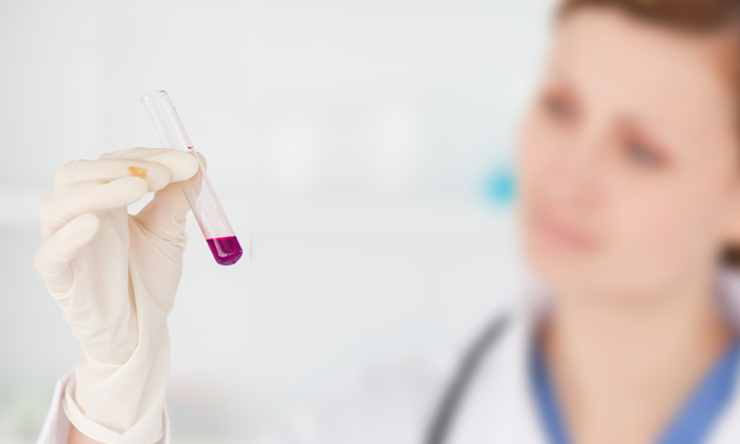Researchers uncover aspirinŌĆÖs effects on platelet rich plasma

A collaborative study led by researchers at 7m╩ėŲĄ explores the effects of aspirin on a new biologic therapy, platelet rich plasma (PRP). This is the first study of its kind to examine the defects of aspirin on platelet rich plasma. Researchers discovered that these blood thinners have a negative effect on platelet rich plasma and found a decrease in growth factor content. Their report was published in the .
Platelets act as first responders to injuries and contain important growth factors that accommodate the healing process. Platelet rich plasma injection may be a treatment for injuries surrounding joints, muscles and ligaments. In order to effectively inject platelet rich plasma, some clinicians take patients off aspirin for a period of time before or after the transfer.
ŌĆ£Platelet rich plasma is essentially your own blood product that is FDA approved, and itŌĆÖs delivered into areas that need healing,ŌĆØ said Dr. Prathap Jayaram, director of regenerative sports medicine at Baylor.
Dr. Jayaram was the lead investigator in collaboration with Dr. Brendan Lee, chair of molecular and human genetics, Dr. Matthew Grol, instructor of molecular and human genetics, and Dr. Theodore Shybut, associate professor of orthopedic surgery.
ŌĆ£Your platelets are a rich source of bioactive proteins that can bring in the right communication for your body to heal,ŌĆØ Shybut said. ŌĆ£In orthopedic applications, the areas that are injured donŌĆÖt have good access to blood supply and hence are unable to harness the healing properties within platelets. WeŌĆÖve tried to short circuit that by taking the patientŌĆÖs own blood and delivering platelets in a suspended volume of plasma with precision ultrasound guidance to augment the healing process in a patient.ŌĆØ
Researchers established the baseline PRP of 12 healthy male participants and placed this group on an 81 mg daily dose of aspirin for two weeks. On day 14, they re-measured their PRP levels and assessed how aspirin affected their PRP. Their findings concluded a robust decline in growth factor content.
ŌĆ£Within the platelets, there is an abundant source of active molecules that participate in restoring tissue repair. Some of these biomolecules are called growth factors,ŌĆØ Jayaram said. ŌĆ£We saw a robust decline in growth factor content, which is what weŌĆÖre mainly attributing to the effective agents in PRP.ŌĆØ
Jayaram noted that this study was conducted on healthy patients without musculoskeletal issues. Although not entirely representative of the aging population that would be on aspirin, it shares mechanisms similar to patients who may be on other non-steroidal anti-inflammatory medications, such as ibuprofen. These findings quantify the effects of aspirin on platelet rich plasma.
ŌĆ£This opens up the dialogue for changing platelet rich plasma application in orthopedic applications,ŌĆØ Jayaram said. ŌĆ£It debunks the belief that there are no effects of baby dose aspirin on PRP. It raises questions of ŌĆśdo we need to be doing something different to our PRPŌĆÖ in terms of activating it ahead of time before getting it to our patients.ŌĆØ
This research was supported by the Rolanette and Berdon Lawrence Bone Disease Program of Texas and the Richard S. Materson Education Research Grant through the Foundation for Physical Medicine & Rehabilitation.



